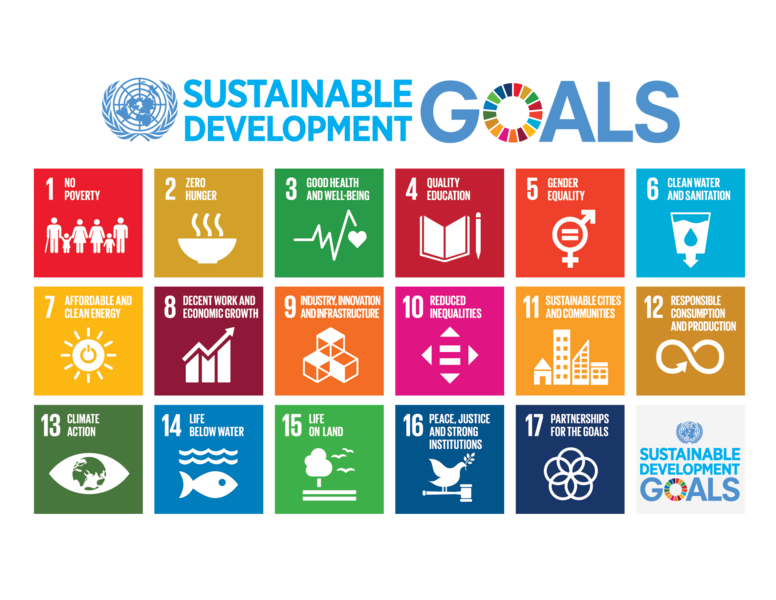 By MIRIAM ACZEL
By MIRIAM ACZEL
A few months ago, I published a piece on the Leaders in Energy blog sharing a few of my favorite books related to the first 7 of the United Nations’ 17 Sustainable Development Goals (SDGs). The 2030 Agenda for Sustainable Development focuses on three key ‘pillars’ of sustainability–social, economic and environmental—in addition to important facets related to peace, justice and effective institutions.
And as January is the month of resolutions, I decided it was a good opportunity to share my favorite picks related to theme of the remaining 10 SDG’s.
GOAL 8: Decent Work and Economic Growth
I recently had the opportunity to review two new books for Science Magazine that discuss the need for a “Green New Deal”–a plan to address climate change alongside economic inequality. Initially put forth by climate activists and then bolstered by U.S. Representatives Alexandria Ocasio-Cortez and Ed Markey, the Green New Deal is a bold vision for dramatically changing infrastructure at the rate and in the manner that pressing climate change necessitates, while dramatically changing the current economic system that brought us to cataclysmic climate conditions. Naomi Klein’s On Fire: The (Burning) Case for a Green New Deal and Jeremy Rifkin’s The Green New Deal: Why Fossil Fuel Civilization Will Collapse by 2028, and the Bold Economic Plan to Save Life on Earth are both important and timely reads—and although both issue alarming calls to action, ultimately strike a hopeful note, emphasizing the potential for positive outcomes.
GOAL 9: Industry, Innovation and Infrastructure
For goal 9, I highly recommend Dustin Mulvaney’s edited volume Green Technology: An A-to-Z Guide. This book makes a clear case for the importance of ‘greentech’ in sustainable development, as well as highlights important developments of existing technology toward energy conservation in addition to the creation of new, green technology aimed at using renewable resources.
GOAL 10: Reduced Inequality
French economist Thomas Picketty’s Capital in the Twenty-First Century’(originally published as ‘Le Capital au XXIe siècle’) provides a sweeping and informative overview of patterns of on wealth and income inequality in Europe and the United States since the 18th century—it’s a fascinating read.
GOAL 11: Sustainable Cities and Communities
Steven Cohen’s The Sustainable City gives readers a wide-ranging and compelling overview of our current urban systems. Highlighting policies and projects currently under way in cities around the globe, and highlighting opportunities for progress, Cohen discusses the sustainable city from the perspective of public policy and management—emphasizing the importance of communities and the ‘local level’.
GOAL 12: Responsible Consumption and Production
One of my favorites written by Safia Minney, founder of the fair trade fashion label People Tree. Naked Fashion: The New Sustainable Fashion Revolution gives readers a guide to a more ethical, diverse and creative approach to the usually extravatant world of style and fashion—with its history of exploitation on many levels. Her book has stunning photography in addition to interviews with key movers and shakers who are revolutionizing sustainable and ethical fashion.
GOAL 13: Climate Action
Climate activist Greta Thunberg’s No One Is Too Small to Make a Difference is a collection of eleven speeches on climate change that she has written and presented at various international venues.
GOAL 14: Life Below Water
Donovan’s Moby-Duck: The True Story of 28,800 Bath Toys Lost at Sea and of the Beachcombers, Oceanographers, Environmentalists, and Fools, Including the Author, Who Went in Search of Them tells the fascinating story the 1992 cargo ship container that dumped in the North Pacific the 28,000 rubber ducks and other bath toys that were headed from China to the U.S.
GOAL 15: Life on Land
I was recently gifted Robin Wall Kimmerer’s beautiful essay collection, Braiding Sweetgrass: Indigenous Wisdom, Scientific Knowledge and the Teachings of Plants, and loved it. As a botanis and a member of the Citizen Potawatomi Nation, Kimmerer has a wealth of both scientific and traditional knowledge and a deep appreciation for life on earth, and our role within it.
GOAL 16: Peace and Justice Strong Institutions
Tapio Kanninen’s Crisis of Global Sustainability looks into the role of organizations and institutions in solving complex problems that threaten our future and the current institutional mechanisms for remedying environmental crises. Importantly, he concludes with an optimistic message that we can transform how we as institutions and individuals respond, but this change will require novel ways of thinking at local, national, and international levels.
GOAL 17: Partnerships to achieve the Goal
Paul Hawken’s Drawdown: The Most Comprehensive Plan Ever Proposed to Reverse Global Warming goes through 100 of the most practical and crucial solutions to reverse global climate change. Grounded in extensive research from both scientists and policymakers across the planet, the book is inspiring and empowering, and demonstrates the power of the individual and collective action with solutions from promoting education of girls to making our cities more sustainable.
Read the Sustainable Development Goals: A Reading List (Part 1) here
Miriam Aczel is a President’s Scholar PhD Candidate at Imperial College London’s Centre for Environmental Policy. Her research is on international energy science and policy, with a focus on mitigation of environmental and health impacts of shale gas, greenhouse gas removal technologies, and citizen science and public participation mechanisms. She is also co-founder and co-director of the Amir D. Aczel Foundation for Research and Education in Science and Mathematics, a nonprofit supporting educational programs in Cambodia and beyond.
Miriam is Director of Communications and blog editor for Leaders in Energy.



Leave a Reply